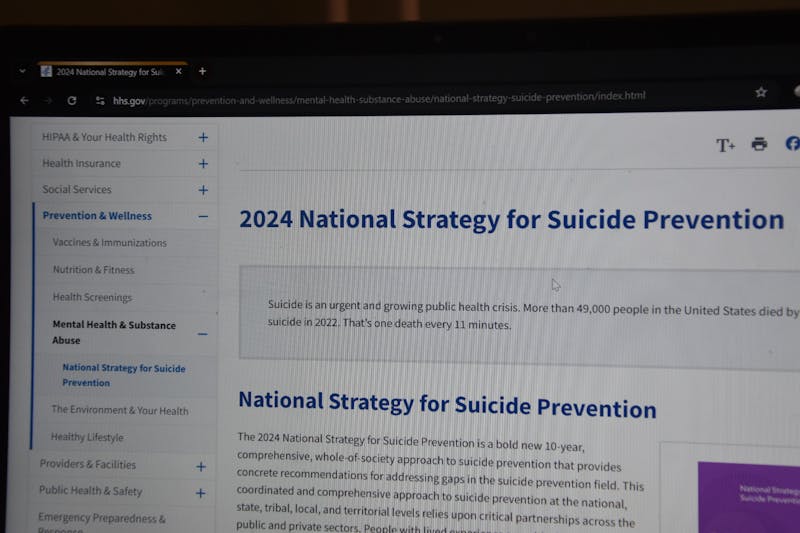
A recent study by the Annenberg Public Policy Center found that nearly half of United States adults incorrectly believe the benefits of daily aspirin use outweigh the potential risks.
Credit: Weining DingResearchers at Annenberg Public Policy Center recently found that nearly half of United States adults falsely believe that the benefits of daily aspirin use outweigh the potential risks.
The Jan. 31 report indicated that 48% of adults associate consistent use of low-dose aspirin with reducing the risk of heart attacks despite 2019 guidelines from the American College of Cardiology and the American Heart Association that advise against routine use.
Kathleen Jamieson, director of the Annenberg Public Policy Center, led the charge of the survey and acknowledged the difficulty of changing patients' habits around aspirin.
“Habits backed by conventional wisdom and the past advice of health care providers are hard to break,” Jamieson said. “Knowing whether taking a low-dose aspirin daily is advisable or not for you is vital health information.”
Using survey technology from an independent research company, the report found almost 1 in 5 adults with no personal or family history of heart attacks take low-dose aspirin on a regular basis. 10% of respondents without a history reported taking aspirin “basically every day,” while 2% indicated weekly use.
Among respondents with no history, those between the ages of 18 to 39 were more likely to believe that the risks of daily aspirin use outweigh the potential benefits. Only 11% of respondents between the ages of 40 and 59 correctly reported the risks. The researchers reasoned that older respondents were more conditioned to believe previous recommendations that modify their medical patterns.
Doctors have historically recommended daily doses of aspirin as a way to thin blood and fight against clogged arteries, heart attacks, and strokes. For patients with existing cardiovascular diseases, low-dose aspirin is still considered a viable means of preventing heart attack.
Recently, doctors have shifted their recommendations for healthy adults against daily doses of aspirin. For adults over the age of 70, aspirin can increase the risk of gastrointestinal bleeding, ulcers, and general discomfort.
Following the release of the AHA guidelines, the United States Preventive Services Task Force issued a “final recommendation statement” that advised against regular low-dose aspirin use.
The study is part of a larger assessment of the conventional knowledge, habits, and beliefs among Americans. For over two years, Jamieson and other Annenberg analysts have explored behaviors surrounding the COVID-19 pandemic and flu vaccinations.
In 2024, the DP reported on the Annenberg Communication Neuroscience Lab publishing unrelated research that indicated that different parts of the brain play distinct roles in perceiving political messages.
The Daily Pennsylvanian is an independent, student-run newspaper. Please consider making a donation to support the coverage that shapes the University. Your generosity ensures a future of strong journalism at Penn.
Donate












